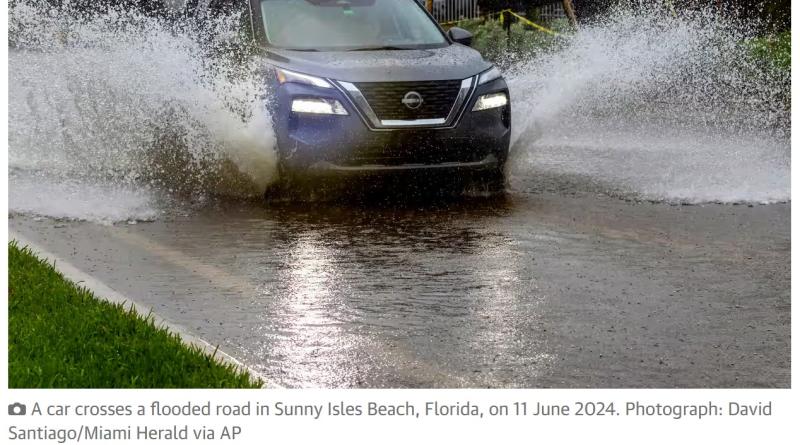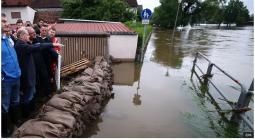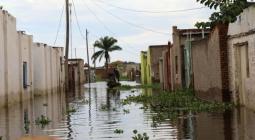Southern Florida sees record-breaking storms with up to 8in of rainfall

Florida was hit with record-breaking rain last night, with the entire southern part of the state under a flood watch through Thursday evening.
Cities like Miami and Fort Lauderdale experienced the heaviest downpour of the year yesterday between 5pm and 8pm, and almost 4in of rain fell in Sarasota in a single hour.
“That’s the most ever in an hour,” David Parkinson, senior weather producer at CBS, said on Wednesday.
The Tampa Bay area saw 8in of rainfall in just three hours. This extreme precipitation is so rare for the region, it’s only anticipated once every 500 to 1,000 years. Heavy showers and thunderstorms have resulted in periods of flash flooding across southern Florida, leaving cars submerged in the streets and causing flight cancellations.
At the Miami international airport, there were more than 450 delays and 50 cancellations, while at the Fort Lauderdale-Hollywood international airport, there were more than 330 delays and a handful of cancellations, according to NBC Miami.
Tuesday brought nearly a month’s worth of precipitation in a short period of time to parts of the region. These extreme rain events are expected to continue and intensify as the planet warms.
Since 1970, hourly rainfall intensity has increased in every region of the US, according to Climate Central. That is largely due to a warmer atmosphere, which has a higher capacity to hold more moisture that is then released in the form of heavier rainfall.
Extreme precipitation is the key driver of flooding across the entire US, accounting for over one-third (37%) of inland flood damage since 1988. Cities that have impermeable surfaces or lack landscape that can absorb rainfall have increased risk of stormwater runoff. Flash floods pose a significant risk to communities as they can overwhelm wastewater management systems, leading to raw sewage flowing out into surrounding bodies of water and potentially exposing people to danger.
Floodwaters can notably contain things like downed power lines, human and livestock waste, and much more, according to the Centers for Disease Control. Exposure to these waters could also cause issues like infection, rashes, tetanus and other ailments.






